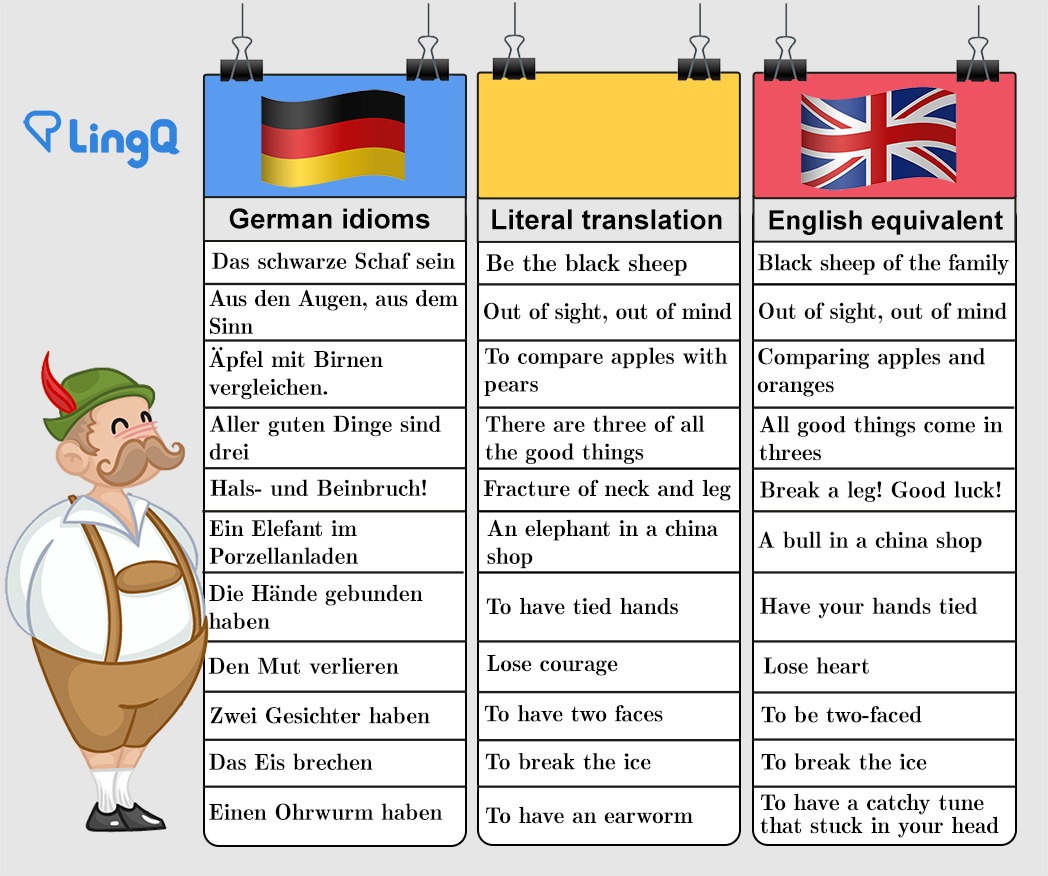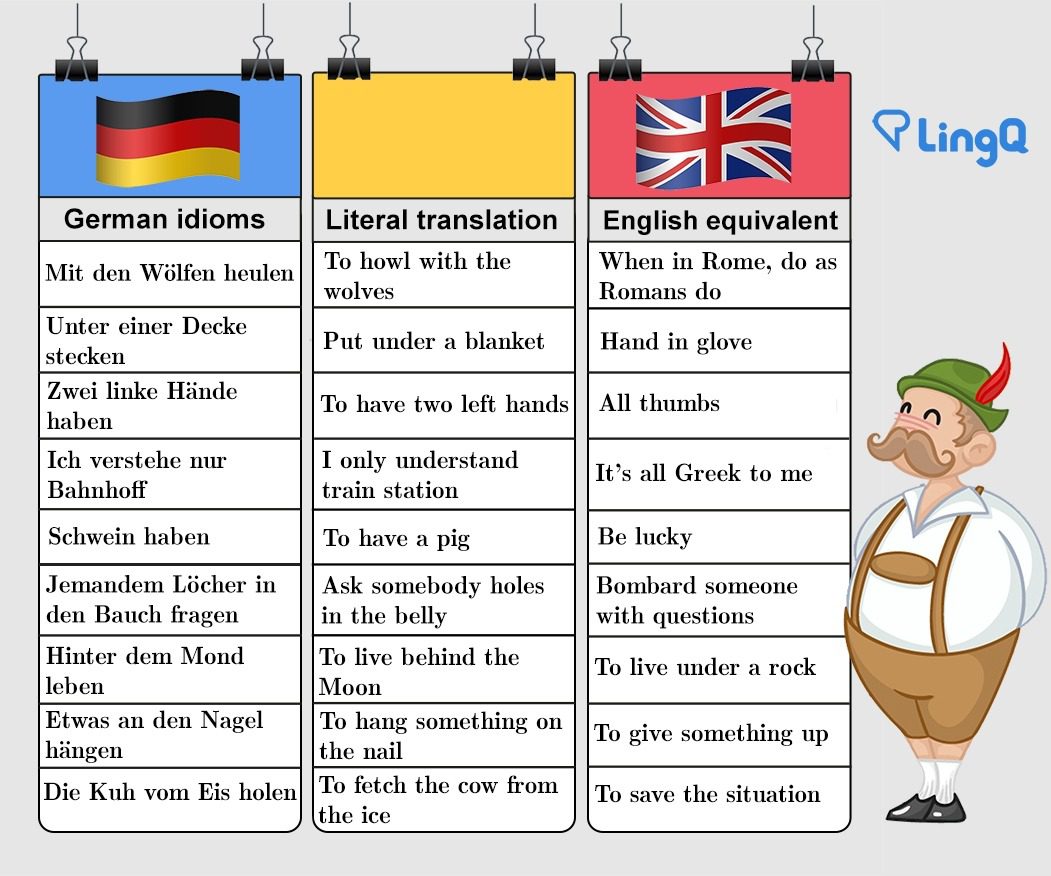Want Your German to Impress? Learn These German Idioms
Many ask, is German hard to learn? Well, learning German and in particular its vocabulary is not a piece of cake. All those lengthy compound words are so hard to understand let alone memorize. But if you’re motivated and learning a few words a day, you’ll make progress.

A Tricky Expression? It Must be an Idiom!
As a German learner, you’ve probably come across some word combinations that don’t make any sense. Even if you know the meaning of each individual word, the phrase might sound like gibberish.
For example, you read about a couple that plans on a having a vacation, and, while discussing the destination, the woman says, “Das ist mir Wurst”. Alternatively, imagine yourself talking to your German friend Rainer who is describing his wonderful new job and adds, “Ich bin der Hans im Glück”.

You may wonder how sausage relates to a holiday destination, and why Rainer says he’s Hans. In both situations you have come across idioms (set expressions with a particular meaning that differs from the meaning of each individual word).
“Das ist mir Wurst” means “I don’t care”, although its literal translation is “It’s all sausage to me”. “Ich bin der Hans im Glück” means “I’m the lucky one”, but translated word for word it means “I am the lucky Hans”.
Idioms reflect national identity and make a language metaphorical and emotional. That’s why by learning common German idioms you will understand the language better, make your speech more diverse and get a much deeper insight into German culture. What’s more, learning idioms will take you to the next level of language proficiency.
Equivalent Idioms
The good news is, some German idioms are as easy as one-two-three because they have English equivalents that sound the same or very similar.

As you can see, the above idioms are very similar to their English equivalents. Even though they have a few slight differences, you would understand what is meant as long as you know the individual words in German.
There are also less obvious German idioms that might be harder to figure out:

These idioms might be harder to understand, but if they are used in context, you might get their meaning.
Typical German Idioms
There is a category of German idioms related to Germany’s historical and cultural events and for that reason do not have equivalents in other languages.
Deutscher Michel (German Michel)
German Michel is an allegorical figure. In the past he used to symbolize a simple German man, then a true patriot of Germany. In the modern world he is widely used to describe a silly and naïve person.
Auf der Bärenhaut liegen (to lie on a bear’s skin)
This means to be lazy and do nothing. This idiom became famous thanks to a song composed by students in the 19th century.
Ab nach Kassel! (go away to Kassel)
Although in some situations it sounds quite unfriendly, this idiom can be jokingly used among friends. It dates back to 1870 when Napoleon III was sent as a prisoner to the castle located above Kassel – a German city in the state of Hesse. The vengeful crowd was shouting “Ab nach Kassel!”

Sausage Idioms
You probably know that Germans love sausages. It’s not surprising then that there are so many sausage-related idioms in the language.
Here are our favorite ones:
Alles hat ein Ende nur die Wurst hat zwei (Everything has an end, but only the sausage has two) – All things come to an end
Eine Extrawurst bekommen (To get an extra sausage) means to be treated in a special way, obtain preferences.
Es geht um die Wurst (It’s all about the sausage) means “It’s a decisive moment when something important is at stake”.
You can say Du armes Würstchen (You poor sausage) when you feel sorry for someone, but also whenever you speak ironically about someone’s misfortune.
Learn German Faster Using LingQ
Immersing yourself in German doesn’t require you to travel abroad or sign up for an expensive language program.
However, it can be a bit tiresome to find interesting content, go back and forth between sites, use different dictionaries to look up words, and so on.
That’s why there’s LingQ. A language app that helps you discover and learn from content you love.
You can import videos, podcasts, and much more and turn them into interactive lessons.
Keep all your favorite German content stored in one place, easily look up new words, save vocabulary, and review. Check out our guide to importing content into LingQ for more information.
LingQ is available for desktop as well as Android and iOS. Gain access to thousands of hours of audio and transcripts and begin your journey to fluency. Check out LingQ today to discover how to learn German from content you love!

